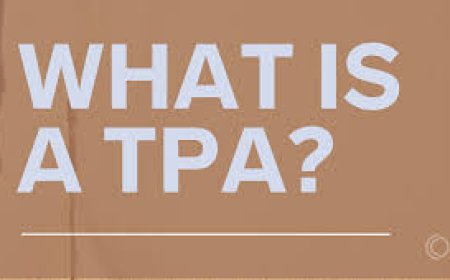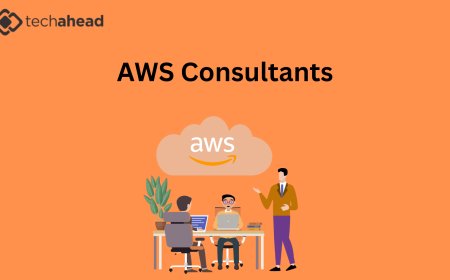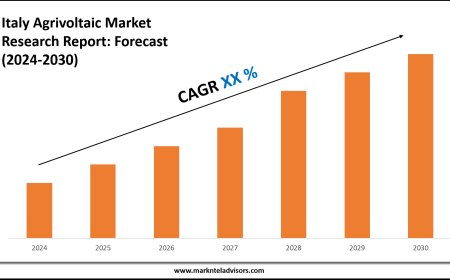Guide to accountant responsibilities
Accountant responsibilities extend far beyond number crunching. Accounting professionals are the financial backbone business + write for us of a company and, in todays complex environment, they are increasingly providing clients with strategic and forward-looking guidance.
Ever-changing regulations and laws, shifts in client expectations, and advancements in innovative technologies like artificial intelligence (AI) are changing the way firms do business and how accountants serve their clients. That being said, accounting core values which include integrity, accountability, professional skepticism, innovation, and personal development remain steadfast.
What are the roles and responsibilities for accountants?
Accountant duties, in general, involve the preparation and examination of financial records, and they possess a distinct set of skills to effectively serve as their clients trusted advisor.
In general, an accountants job Apply for Student Loan Cancellation description includes common accounting tasks such as:
Performing risk analysis evaluations.
Recording expenses and preparing financial reports.
Working with external auditors.
Ensuring the accuracy of bookkeeping and that the bookkeeping is compliant with state and federal laws.
Recording disbursements and payments.
Ensuring that systems are up to date.
Examining financial documents and financial transactions to ensure compliance and rectify any discrepancies.
Preparing tax returns.
Additionally, depending on the type of firm, accountants may be involved in more advisory-centric responsibilities, such as analyzing financial data and providing clients with strategic guidance and recommendations on how to reduce costs and boost profitability.
Types of accountants and niche practice areas
There are, of course, various types of accountant jobs and areas of specialty. Types of accountants include, but are not limited to, forensic accountants, who investigate potential fraud and financial discrepancies; tax accountants, who specialize in preparation for individuals and businesses and tax planning; and private or corporate accountants, who focus on financial reporting, budgeting, and performance analysis for internal use within a company versus for the public.
Furthermore, accountants are increasingly focusing on a particular vertical or niche to further boost their competitive edge. For instance, accountants may specialize in serving nonprofits, manufacturers, restaurants, or dental offices.
But what has become more evident in recent years, especially in light of the pandemic, is that regardless of the industry served or area of specialty, the ability to adapt and learn is vital to an accountants job growth and development in the industry.
Responsibilities around AI in accounting
Further illustrating this point are the advancements in innovative technology, such as AI, and its impact on the profession. In fact, more boards and audit committees are, or will be, looking for accountants who understand AIs potential and limitations.
According to Pilar Garcia, CPA, Tax and Accounting Executive Editor for Thomson Reuters, AI, especially generative AI, can propel the accounting profession forward like no other technological advancement since Excel. That may have been said about other technological developments, such as blockchain and the use of robotic process automation (RPA). Gen AI is different, however, because Gen AI studies content or data it is given, then interacts with a human accountant. The back-and-forth interaction is stimulation and can help the human accountant think better and smarter.
Continued Garcia, The growing use of AI will free up valuable time and energy for an accountant. Some of the benefits I see are faster research, better detection of errors or anomalies, higher accuracy in processing tax and financial data, and a more efficient end-to-end accounting and reporting process.
Garcia stressed that AI will augment, not replace, the work of accountants and also expressed words of caution.
The use of AI doesnt change the accountants core values. An accountant uses, but doesnt rely on, AI. An accountant is still needed to oversee the overall accounting and reporting process and ensure internal controls over the use of AI in its processes and workflows are designed and operating effectively, said Garcia. The accountants roles and responsibilities remain the same when it comes to ensuring the input is accurate and the output is correct and not misleading.
Accounting assumptions
In an effort to help ensure information is reliable and consistent, accounting assumptions are a set of guidelines that indicate how a company operates and business transactions are recorded.
Some of the key accounting assumptions which are beneficial for the entity, its management, as well as for those reading the financial statements include the reliability assumption, accrual assumption, and economic entity assumption, to name a few.
CPA responsibilities to clients
As a trusted advisor in an increasingly complex financial landscape, certified public accountants (CPAs) have significant responsibilities for the services they provide to their clients.
As outlined by Garcia, for CPAs in financial accounting, some of the top responsibilities to clients include:
Providing timely and trusted answers
Staying on top of emerging regulatory activities
Helping clients implement and consistently apply high-quality accounting standards
Partnering when clients need help navigating certain situations.
Furthermore, because CPAs have a responsibility to the users of the clients financial statements, clients expect CPAs to uphold the professions rules on independence.
Accountant vs. CPA vs. tax preparer: What are the differences?
Accounting professionals may find that some outside of the profession do not fully understand the differences between an accountant and a tax preparer. So, what are the differences?
Requirements to become an accountant
Becoming an accountant typically requires a bachelors degree in accounting, finance, or a related field. A masters degree may not be required but earning one can prove to be an advantage.
Salaries are likely to vary depending on the level of experience, education and geographical location, but the average base salary for an accountant is $62,410 per year.
Requirements to become a CPA
Those accountants interested in becoming a CPA must earn at least a bachelors degree and pass a state licensure exam. They also need one year of accounting-related work experience. In order to keep their certification current for representation in front of government entities and tax return preparation, CPAs must also keep up to date with yearly continuing education requirements.
Again, salaries will vary depending on the level of experience, education and the geographical location, but the average base salary for CPAs is $96,583 per year.
While the number of college accounting graduates has been on the decline,?projections for the 202324 academic year proved more favorable, according to the AICPAs 2023 Trends report.
According to the report, Enrollment expectations continue to be optimistic, with 75% of responding bachelors programs and 78% of responding masters programs expecting enrollment in 202324 to be the same or higher as in 202122.
Requirements to become a tax preparer
Tax preparers, on the other hand, are often non-licensed professionals who typically focus on preparing, filing, or assisting with general tax forms. In other words, a specific license is not needed to become a preparer. It should be noted that a few states may require a separate credential.
Becoming a tax preparer is a straightforward process that involves passing the IRSs suitability check and?obtaining a preparer tax identification number (PTIN). However, in order to have representation rights, one must be an enrolled agent, CPA, or attorney.
Enrolled agents are licensed by the IRS. According to the IRS, enrolled agents are subject to a suitability check and must pass a three-part Special Enrollment Examination to demonstrate their proficiency in individual and business tax return preparation, federal tax planning, and representation. In addition, they must complete 72 hours of continuing education every three years.
The average base salary for an enrolled agent is $68,813 per year, but again, that will likely vary depending on the level of experience, education and geography.
GAAP and AICPA
Accounting professionals are no strangers to the GAAP (generally accepted accounting principles) accounting framework or the industrys American Institute of CPAs (AICPA), which serves 698,000 members, students, and professionals in 188 countries and territories.? However, there are several important developments to be aware of as the industry continues to evolve.
Issued by the Financial Accounting Standards Board (FASB) and the Governmental Accounting Standards Board (GASB), GAAP is a set of accounting practices, requirements and rules to determine how financial statements are prepared. The goal: to ensure that financial information is consistently and accurately reported.
GAAP, which is required for for-profits, non-profits, and government entities, used to be considered reactionary or historical accounting. However, this is no longer the case.
Todays accountants certainly have the knowledge around processing financial data, but they also have an important role in business strategy and operations, even risk management, said Garcia. For example, an accountant should be involved in determining the most appropriate tax accounting and financial reporting software for the companys use. Also, an accountant should be involved in understanding the nature of the companys new products, services, and selling strategies, and the potential effects on the financial statements. Accountants also have the ability and outlets to discuss the potential accounting effects of a particular strate





























